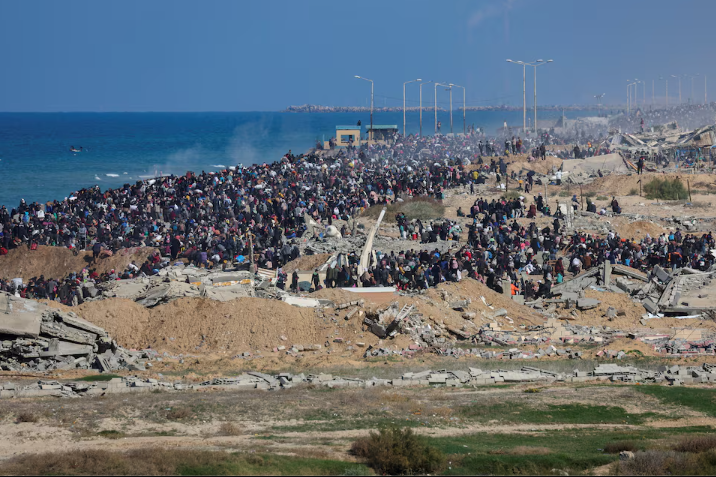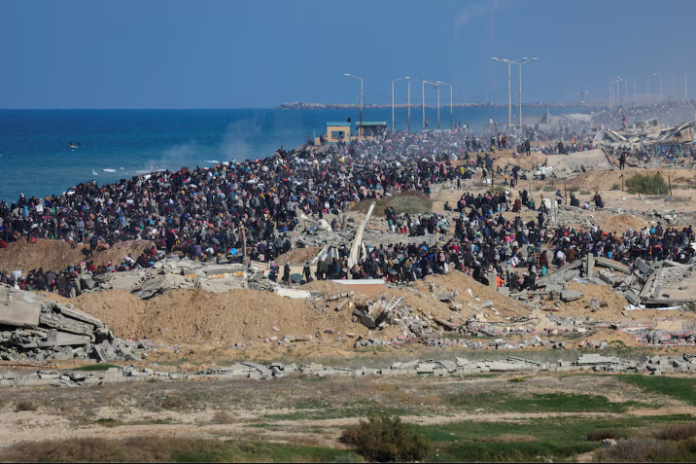Israel’s Defense Minister, Israel Katz, has directed the army to draft a plan for the “voluntary departure” of Gaza residents, according to Israeli media reports. This move comes in response to former U.S. President Donald Trump’s highly controversial proposal to take over Gaza and relocate its Palestinian population.
Trump’s announcement, which has drawn widespread condemnation from global powers and human rights organizations, suggested transforming Gaza into the “Riviera of the Middle East” while resettling its current residents elsewhere. Katz welcomed the idea, stating that Gaza residents should be given the option to leave and resettle in other countries.
Who Will Take in Gaza’s Displaced People?
Katz has suggested that nations critical of Israel’s military actions, including Spain, Ireland, and Norway, should take in Palestinian refugees. He argued that these countries, having accused Israel of war crimes, should now prove their commitment by offering sanctuary to displaced Palestinians. He also pointed to Canada, which has a structured immigration system, as a potential host nation.
Backlash Against Trump’s Gaza Plan
Trump’s proposal has triggered outrage across the Middle East and beyond. Countries such as Saudi Arabia and Jordan have outright rejected the idea, with Jordan’s King Abdullah reaffirming his opposition to any attempts to displace Palestinians.
Major global players, including Russia, China, and Germany, have condemned the plan, warning that it could lead to more suffering and long-term instability. Iran’s foreign ministry accused the initiative of being part of Israel’s efforts to “eliminate the Palestinian people.”
Netanyahu’s Support and Hamas’ Outrage

Despite the global criticism, Israeli Prime Minister Benjamin Netanyahu praised Trump’s idea, calling it “remarkable” and worthy of serious consideration. While he did not specify whether he supports a full U.S. takeover of Gaza, he emphasized that the proposal could create a new future for the region.
On the other hand, Hamas, which governed Gaza before the war, dismissed the idea as “ridiculous and absurd.” Palestinian leaders and rights organizations have warned that forced displacement could amount to ethnic cleansing.
What’s Next?
While Trump’s aides have softened some aspects of the proposal in response to international condemnation, the broader plan remains unclear. At the same time, Katz’s directive to Israel’s military suggests that discussions on Gaza’s future are far from over.
With ceasefire negotiations between Israel and Hamas underway, the debate over Gaza’s future is intensifying. The international community will be watching closely to see whether these proposals materialize or remain political rhetoric.



